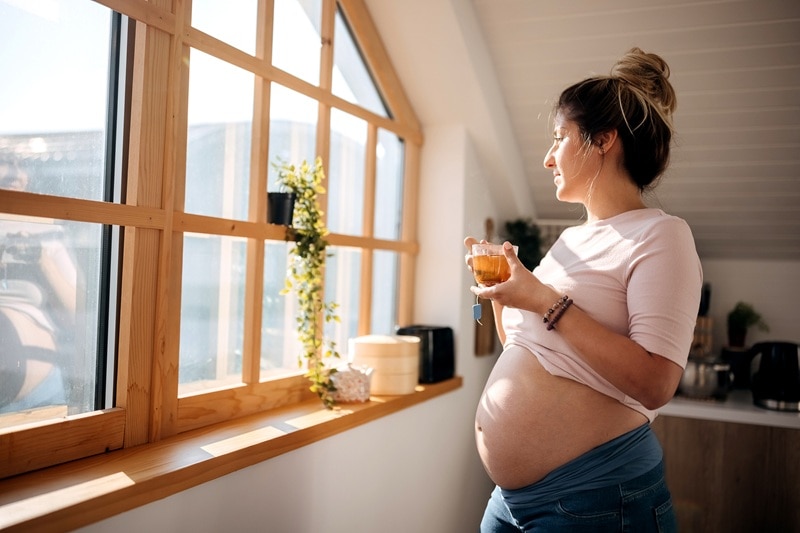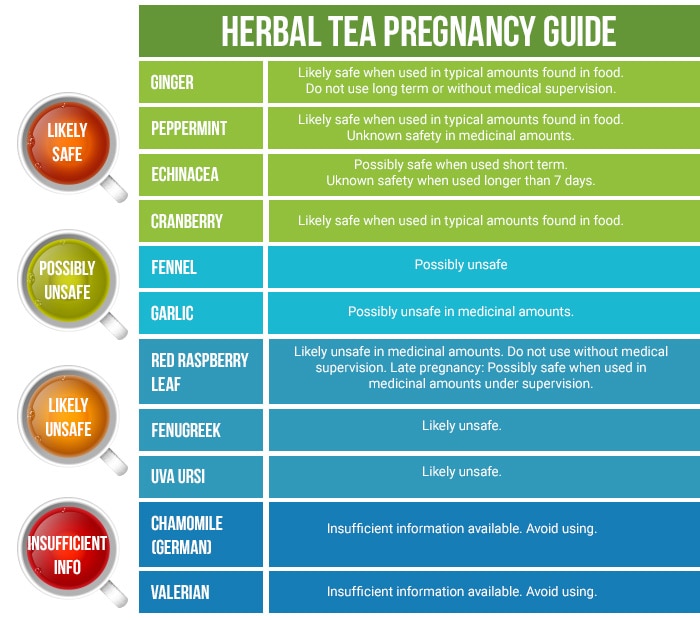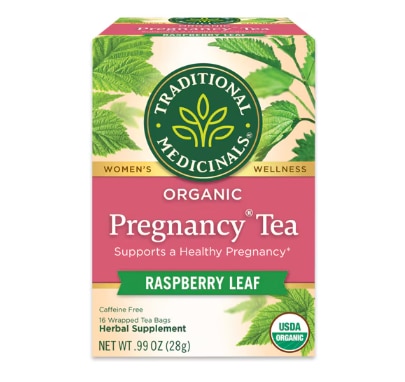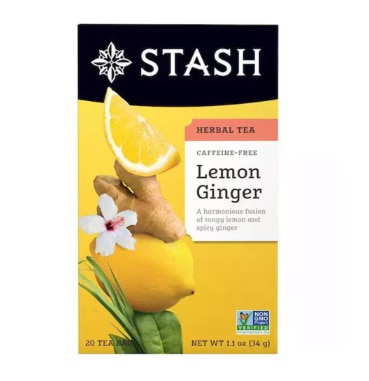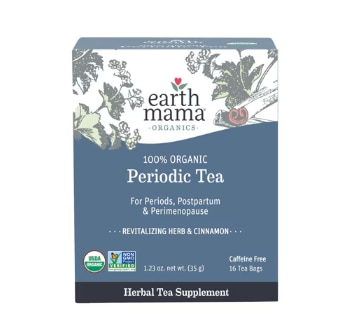Pregnancy comes with its fair share of challenges, and with so many medications off-limits, it’s no surprise that many moms-to-be look for more natural ways to feel better. In fact, about 30% turn to herbal remedies like tea during this special (and sometimes tricky) time. But doctors caution that “natural” doesn’t always mean “safe.” When it comes to herbal tea and pregnancy, there’s still a lot we don’t know, and plenty of gray areas to navigate. Our Kroger Health Registered Dietitians will unpack the research about what teas to sip while brewing a baby.
Herbal Teas & Pregnancy: How to Stay Safe
Types of tea
It’s important to understand the difference between non-herbal and herbal tea. A non-herbal tea is made from the leaves of the tea plant and includes white, oolong, green and black teas. These have caffeine unless they are a decaf version. Aside from the caffeine content, non-herbal teas may have health benefits, but according to the American Pregnancy Association, “pregnant and breastfeeding women are often encouraged to cut down on or eliminate” caffeine. The Natural Medicines Database rates both green and black teas as “possibly unsafe” in pregnancy when used in large amounts mainly due to high caffeine intake, but “possibly safe” when used in moderate amounts.
Herbal teas are not made from the tea plant but instead are made from various other plants and their plant parts, such as skins, roots, leaves and/or berries. Herbal teas do not have caffeine (unless it has been added). Learn more about tea by reading A Beginner’s Guide to Tea.
Safety considerations
There is very limited research on the safety and effectiveness of herb usage during pregnancy. It is difficult to do research on pregnant women due to ethical concerns about risks to the baby and mother. Even something as natural and simple as herbal tea, can be potent enough to exert a response in the body similar to medicine. Therefore, expecting moms need be careful what they sip. Some of the during pregnancy are assumed to be safe, especially if limited to moderate amounts, which is typically no more than two cups of tea per day.
Aside from the dose, the safety of herbal tea in pregnancy also depends on the preparation and trimester. Ensure any teas used are the exact ingredients needed. Different parts of the same plant could have different harms or benefits (e.g. leaves versus berries). Ensure the herbal tea is from a trustworthy source and tested for purity to avoid any harmful by-products. The first trimester may be the time to be most cautious due to the rapid growth of the baby during that time.
Even for herbal teas considered “likely safe,” personal risk factors could make a tea not recommended for some. Thus, always consult a health care provider for more personalized advice before trying herbal teas. Also, the risks for different herbs can vary between pregnancy and lactation so don’t assume if it’s safe during pregnancy that it also applies to lactation.
Herbal Teas in Pregnancy: Types & Their Safety
While typical herbal tea use varies by culture, the below chart is an overview of the most commonly used herbs and teas in pregnancy and their safety rating. This safety data can appear alarming for some commonly used herbs. Keep in mind that small amounts (the amount typically used in food) are not considered a “medicinal amount” for most common herbs. Small amounts, irregularly used, may not pose a problem but large doses of herbs in a tea may. If in doubt, always consult a health care .
Summary
Before sipping herbal tea in pregnancy, it is advised to only use commonly used teas assumed to be safe, ensure the brand and preparation is safe, and only use moderate amounts. As always consult a health care provider before use. For more personalized food and nutrition advice for any stage of life, including pregnancy and beyond, schedule a virtual nutrition counseling appointment with a Kroger Health Registered Dietitian, our nutrition experts.

